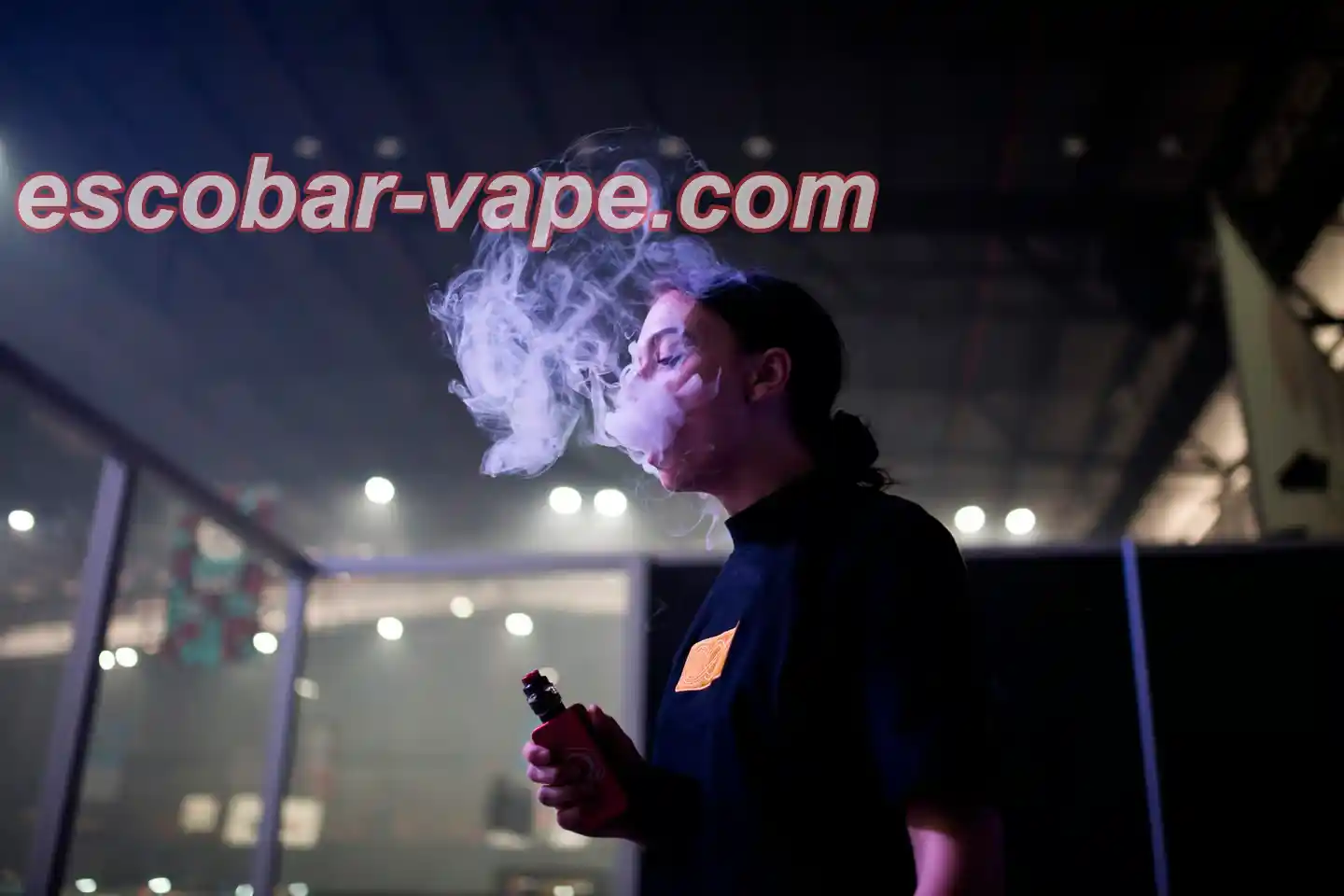Mexico’s Supreme Court Ruling on Vaping: What It Means for the Industry
Mexico’s Supreme Court Ruling on Vaping: What It Means for the Industry
Recently, Mexico’s Supreme Court made waves by ruling on the controversial vaping ban imposed by the government, but don’t break out the vape pens just yet—this decision doesn’t mean a nationwide ban on vaping has been overturned. Instead, it only applies to the specific case at hand, leaving the future of vaping laws in the country hanging in the balance. But the ruling does provide some hope for the vaping industry, which has been struggling with tight restrictions.
In this article, we’ll break down the Supreme Court’s ruling, its implications for businesses and consumers, and what could be coming next. Grab your vape and let’s dive in.
The Supreme Court’s Decision: A Glimmer of Hope for Vaping Retailers
In a landmark ruling, Mexico’s Supreme Court declared that the blanket ban on the sale of vaping products violated constitutional rights, specifically the right to commercial freedom. This decision paves the way for retailers to challenge the ban, but don’t get too excited—this isn’t an automatic free pass to start selling vape products nationwide.
The ruling allows specific retailers who were part of the case to seek permission to sell vaping products again. However, it only affects the businesses directly involved, meaning that many others are still stuck dealing with a harsh, nationwide ban. For retailers looking to get back into the vape business, they will need to navigate the complicated legal system and challenge the law themselves.
Alberto Gómez Hernández, the head of the World Vaping Alliance, made an important point in the aftermath of the decision. He argued that the ban doesn’t just infringe on business rights—it also restricts the health and personal development rights of adult Mexicans. This perspective could give other retailers the courage to take similar legal action to fight for the right to sell vaping products. Have questions about vapes? esco bars vape answers all your questions! But for now, the full ban remains in place, highlighting the need for more legal challenges and public discussions about the future of vaping in Mexico.
Is Vaping Really That Harmful?
Critics of the Supreme Court’s decision argue that the government’s vaping ban is a necessary measure for public health. However, vaping advocates believe that restricting access to vape products could actually do more harm than good. As it stands, the ban has pushed vaping into the underground market, where it’s controlled by unregulated, illegal sellers. These products often don’t meet the health and safety standards required in legal markets, posing a real risk to public health.
Advocates like Hernández suggest that Mexico should follow the examples of countries like Sweden and the UK, which have successfully used vaping as a tool to help smokers quit traditional cigarettes. In these countries, vaping is seen as a less harmful alternative to smoking, and many smokers have turned to it to reduce their tobacco consumption. There’s even evidence suggesting that when properly regulated, vaping can be an effective smoking cessation tool.
However, Mexico’s legal environment is still divided. The latest Supreme Court ruling highlights the ongoing tension between public health policy and personal freedom. Until this issue is fully resolved, it seems like legal vaping in Mexico will remain a challenging topic.
Restrictions on Vape Imports and Sales
In Mexico, you can still carry a vape for personal use—though only in small quantities. But if you’re thinking of bringing a vape for commercial purposes, think again: that’s still illegal. Retailers looking to get into the vape game have to deal with a complex regulatory environment.
The Federal Commission for the Protection against Sanitary Risks (COFEPRIS) is the agency responsible for regulating vape products. This includes setting the health and safety standards that all vape products must meet before they can be sold in stores. For retailers, this means a lot of paperwork, approvals, and red tape.
While the Supreme Court ruling does allow certain retailers to challenge the sales ban, it doesn’t mean that the country has suddenly opened the floodgates to vaping products. In fact, unless retailers are able to prove that the ban is unconstitutional in their specific case, they won’t be able to sell vapes at all.
What This Means for Vape Retailers
Retailers who want to sell vape products in Mexico have a long road ahead of them. They’ll need approval from COFEPRIS, and they must comply with a host of regulations, including restrictions on advertising and sales to minors. While the recent Supreme Court decision provides a legal avenue for retailers to challenge the sales ban, they’ll have to go through the courts to get permission to sell vape products.
It’s not just a matter of jumping through bureaucratic hoops. Retailers must also bear the responsibility of ensuring that they comply with Mexico’s health and safety standards. For any retailer looking to sell vape products, this could involve hiring legal experts to help them navigate the constantly evolving legal environment.
But even with the ruling in place, there’s still a lot of uncertainty. The ban remains active nationwide, meaning that for most retailers, selling vapes is still off-limits. However, the ruling has opened a door for future legal challenges, and it could potentially lead to broader legislative changes down the road.
Enforcement and Penalties: The Risk of Getting It Wrong
When it comes to enforcing vaping laws in Mexico, the government doesn’t mess around. COFEPRIS oversees the market to ensure that all vape devices and liquids meet strict health and safety standards. Those who violate the rules could face severe penalties, including hefty fines, product seizures, and even the closure of their business. Looking for more vapes? esco bar flavors helps you discover new options!
For retailers, selling non-compliant products or marketing to minors could result in particularly harsh consequences. In addition to financial penalties, repeat offenders might have their business licenses revoked, which could mean the end of their business operations.
Things get even more complicated with the Supreme Court ruling. While it does allow specific retailers to challenge the vaping ban, the enforcement of the law will still depend on individual cases. That means if a retailer doesn’t comply with the law or fails to win a court case, they could face serious repercussions.
The Underground Market: A Growing Problem
With the current restrictions on vaping products, Mexico is seeing a boom in the illegal vape market. These black-market vape products are sold without the regulatory oversight that legal products undergo, which means that consumers are taking significant health risks when they buy from unlicensed sellers. What’s worse, the quality and safety of these products are not guaranteed.
The underground vape market presents a huge problem for both consumers and legal businesses. It’s no secret that the black market is thriving in many parts of the world, and Mexico is no exception. As long as the legal market remains restricted, the black market will continue to be a major player in the country’s vaping scene.
For consumers, this means that buying safe and regulated vape products is a challenge. Many vapers might turn to the black market, unaware of the dangers posed by unregulated products.
What’s Next for Vaping in Mexico?
As of now, the future of vaping in Mexico remains uncertain. Despite the Supreme Court’s decision, the ban on commercial sales remains in place. This means that retailers and consumers alike are still in limbo, waiting for further legal challenges and potential changes to the law.
One thing is clear: the status quo is unsustainable. The current legal framework is driving vaping into the underground market, where both public health and consumer safety are at risk. To make progress, Mexico could learn from other countries like the UK and Sweden, where vaping is embraced as a public health tool.
If Mexico wants to create a safer, more regulated environment for vaping, it will require continued legal battles, public education, and a shift in policy. Only time will tell how things shake out, but one thing’s for sure: the vaping debate in Mexico is far from over.
FAQ: Your Burning Questions About Vaping in Mexico
1. Can I legally buy vape products in Mexico?
Buying vape products in Mexico is tricky due to the strict regulations and nationwide ban on commercial sales. However, some businesses may be able to legally sell vape products if they have received protection from the courts.
2. Is it legal to vape in public?
Public vaping in Mexico is subject to strict limitations. Smoking is banned in most indoor public spaces, schools, and workplaces to protect public health.
3. Can I bring my vape into Mexico?
No, it is illegal to bring vaping devices or e-liquids into Mexico for personal or commercial purposes. The country has strict rules against the importation of vape products.
4. What are the penalties for violating Mexico’s vape laws?
If you violate Mexico’s vaping laws, you could face significant fines ranging from $1,000 to $8,000, and in some cases, even criminal charges. Repeat offenders may lose their business licenses or face product seizures.
Stay tuned, because as Mexico continues to grapple with the vaping issue, we’re likely to see more developments—and the future of vaping in Mexico is still up in the air!
